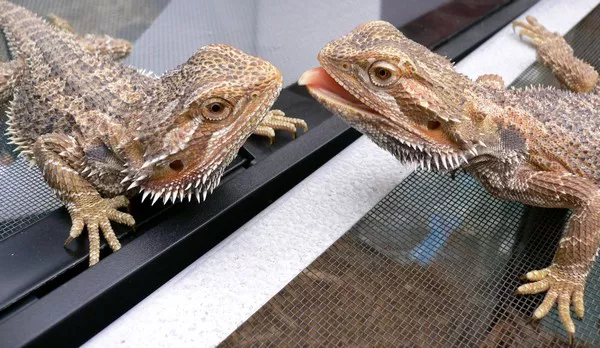Bearded dragons are popular reptiles among pet owners due to their docile nature and unique appearance. As with any animal, there are certain behaviors that may seem unusual or even alarming to their owners. One such behavior is when bearded dragons eat their eggs. In this article, we will explore why bearded dragons eat their eggs and what owners can do to prevent this behavior.
Why do bearded dragons eat their eggs?
Bearded dragons are known to lay eggs, which is a natural part of their reproductive cycle. However, sometimes bearded dragons may eat their own eggs. This behavior is not uncommon among reptiles, and there are a few reasons why bearded dragons may engage in this behavior.
One reason that bearded dragons may eat their eggs is due to a lack of calcium in their diet. Calcium is essential for proper egg development, and if a bearded dragon is not getting enough calcium, the eggs may not develop properly. When a bearded dragon realizes that their eggs are not viable, they may eat them in order to regain some of the lost calcium.
Another reason why bearded dragons may eat their eggs is due to stress. Stress can be caused by a number of factors, including improper lighting or temperature in their enclosure, overcrowding, or changes to their environment. When a bearded dragon is stressed, they may engage in abnormal behaviors such as eating their own eggs.
Lastly, bearded dragons may eat their eggs simply because they are curious or have a natural instinct to do so. In the wild, reptiles may eat their eggs as a way to keep their nest clean or to prevent predators from finding their eggs.
How to prevent bearded dragons from eating their eggs
If your bearded dragon is eating their eggs, there are a few things that you can do to prevent this behavior from happening in the future.
First, make sure that your bearded dragon is getting enough calcium in their diet. A diet that is high in calcium can help ensure that your bearded dragon’s eggs develop properly and can prevent them from eating their own eggs.
Second, make sure that your bearded dragon’s enclosure is set up properly. Bearded dragons need a specific type of lighting and temperature in order to thrive, and if their environment is not set up correctly, they may become stressed and engage in abnormal behaviors.
Third, make sure that your bearded dragon has a suitable nesting area. A nesting area that is dark and secluded can help your bearded dragon feel secure and may prevent them from eating their own eggs.
Lastly, if your bearded dragon continues to eat their own eggs despite your efforts to prevent this behavior, it may be necessary to separate the bearded dragon from their eggs. This can help prevent the bearded dragon from eating their eggs and can also prevent them from becoming stressed if the eggs are not developing properly.
Bearded dragons are fascinating reptiles that can make wonderful pets. However, if you notice that your bearded dragon is eating their own eggs, it is important to take steps to prevent this behavior from happening in the future. By ensuring that your bearded dragon is getting enough calcium, that their enclosure is set up correctly, and that they have a suitable nesting area, you can help prevent your bearded dragon from engaging in this behavior. If your bearded dragon continues to eat their own eggs despite your efforts, it may be necessary to separate them from their eggs in order to prevent further stress or harm.


























